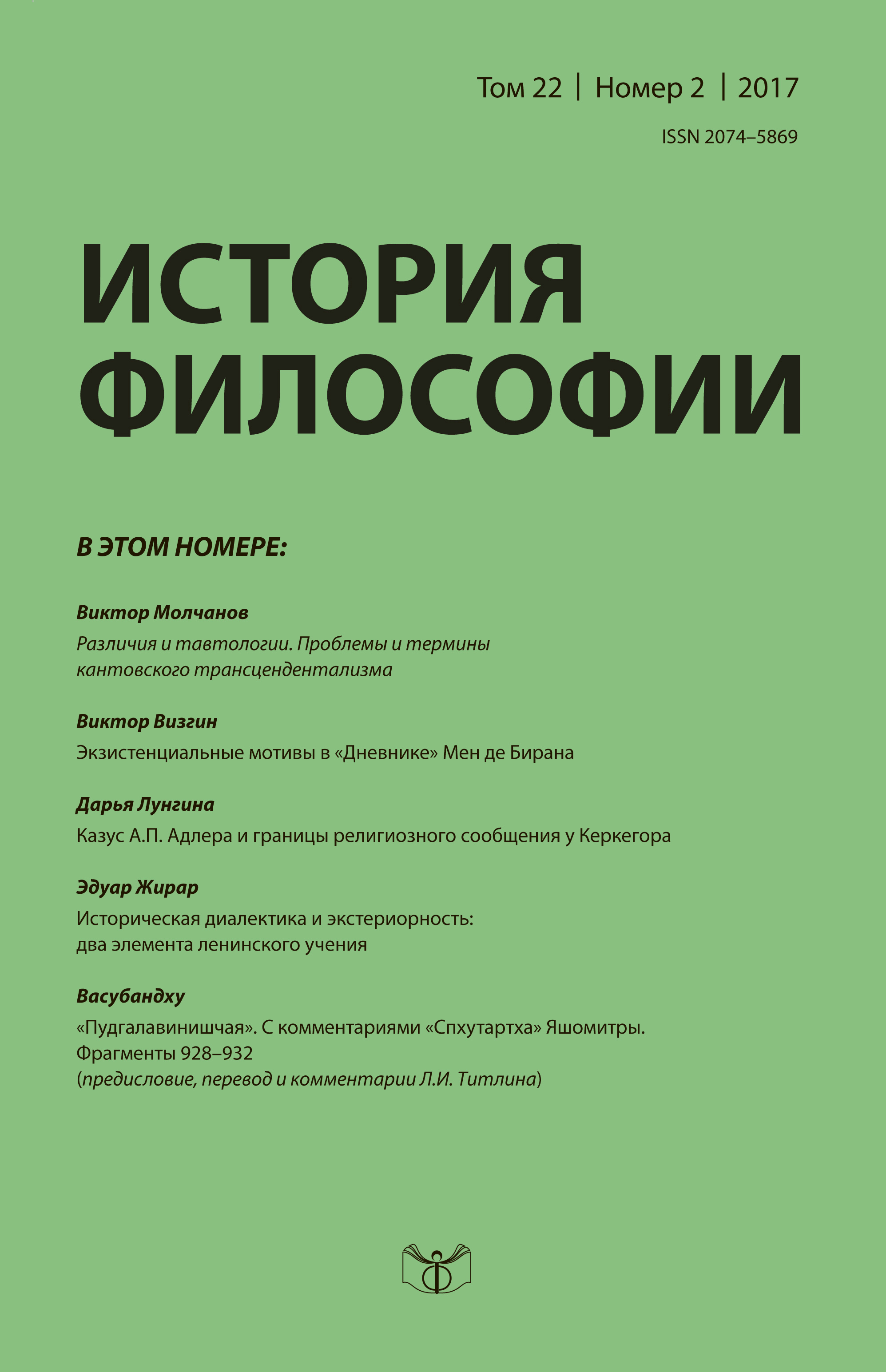Differences and Tautologies. Problems and Terms in Kant’s Transcendentalism
Keywords:
I. Kant, transcendentalism, tautology, philosophy, thing in itself, experience, appearance, objectAbstract
In this paper I raise a question of the structural and empirical origins of transcendentalism. The difference between the Kantian and Husserlian understanding of the tasks of philosophy as well as the relation of terms and problems in historical and philosophical research is considered. The passage from the first edition of the Critique of Pure Reason concerning the difference between rainbow and rain in empirical and transcendental dimensions is analyzed in detail. The ambiguity of Kant’s basic concepts, the tautological and contradictory nature of his arguments are revealed. The translations into Russian of the main Kant’s terms are analyzed.
Downloads
Published
2018-03-29
Issue
Section
THEORY AND METHODOLOGY OF HISTORY OF PHILOSOPHY
How to Cite
Molchanov, V. . (2018). Differences and Tautologies. Problems and Terms in Kant’s Transcendentalism. History of Philosophy, 22(2), 5-19. https://hp.iphras.ru/article/view/1122

